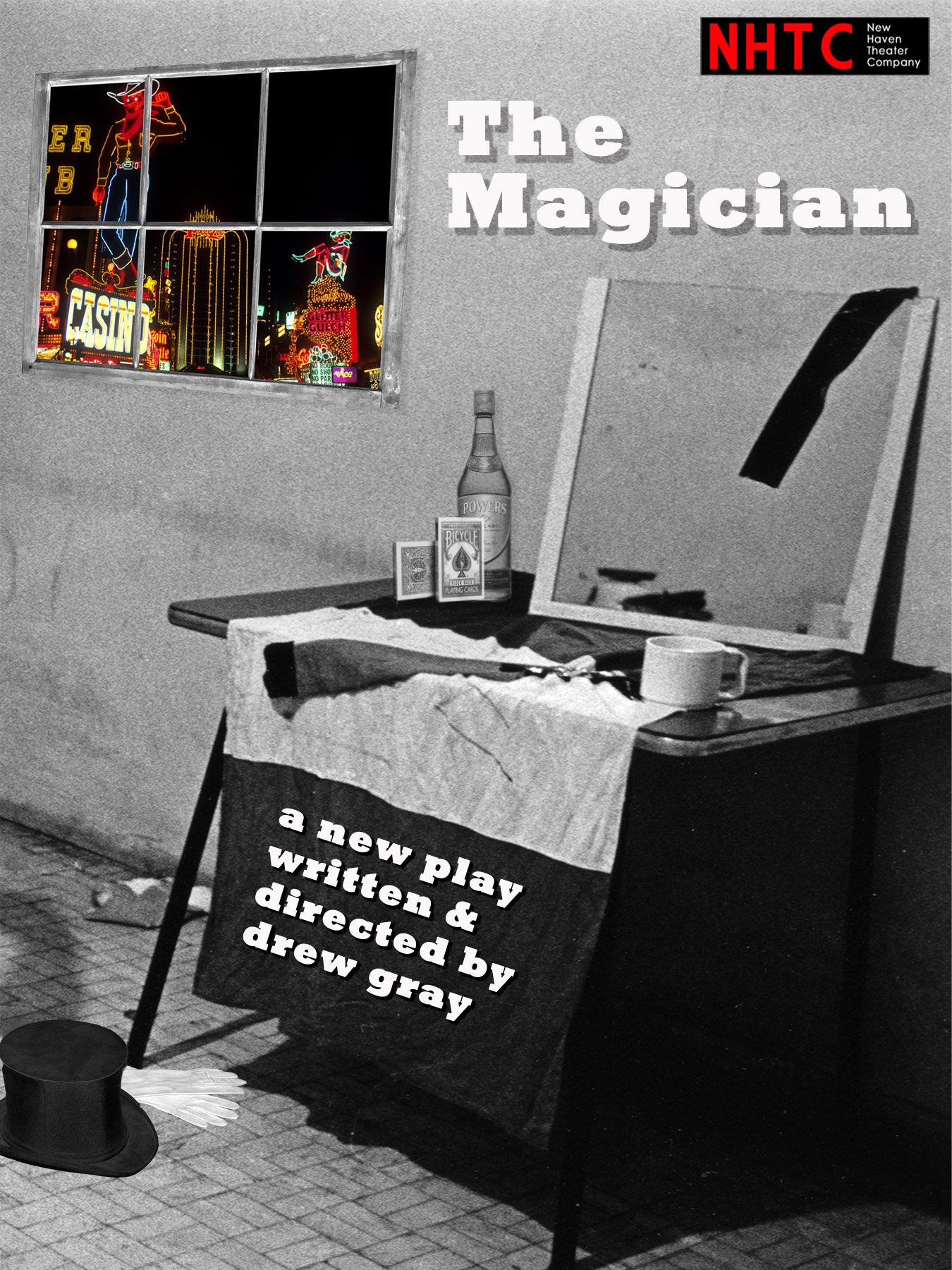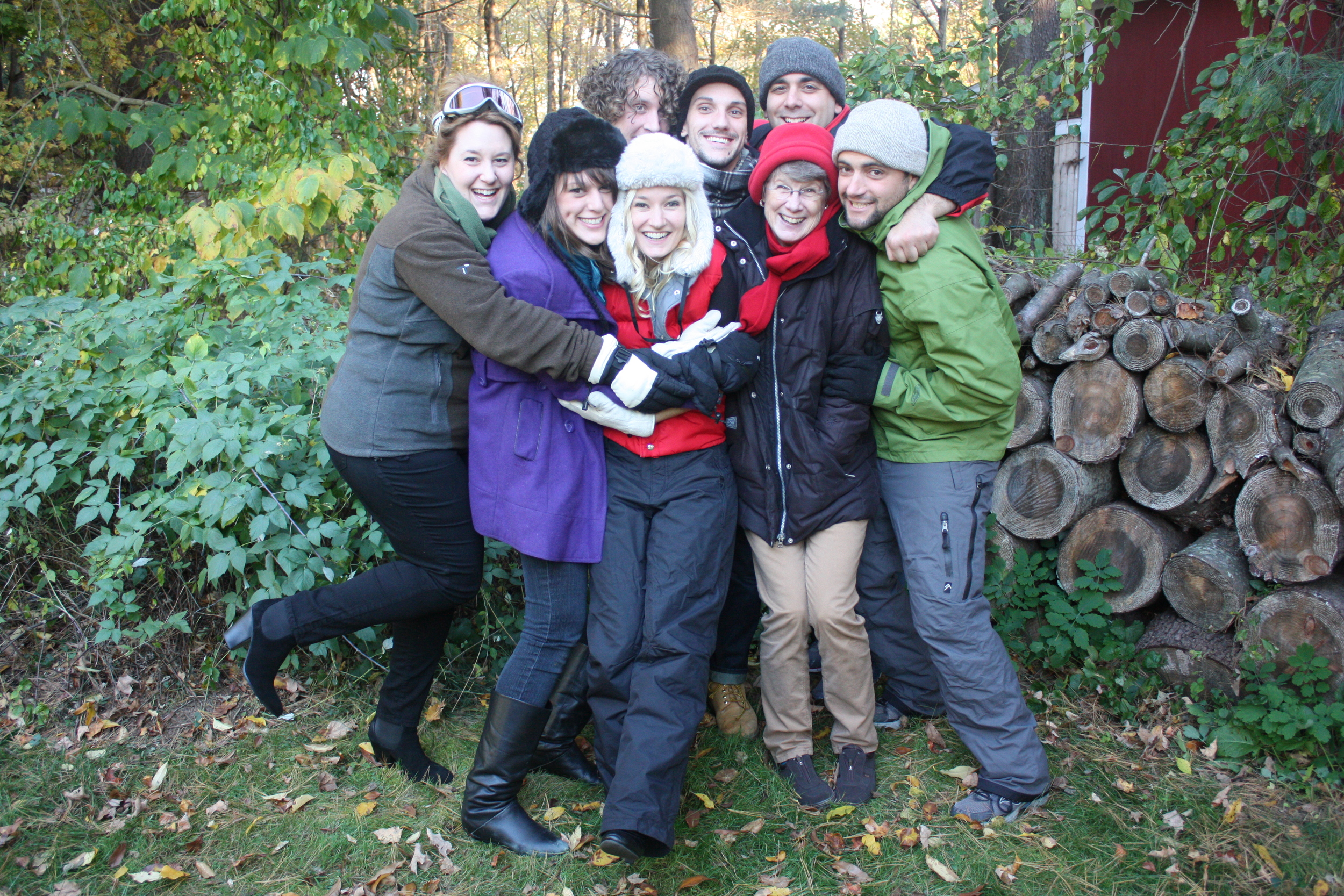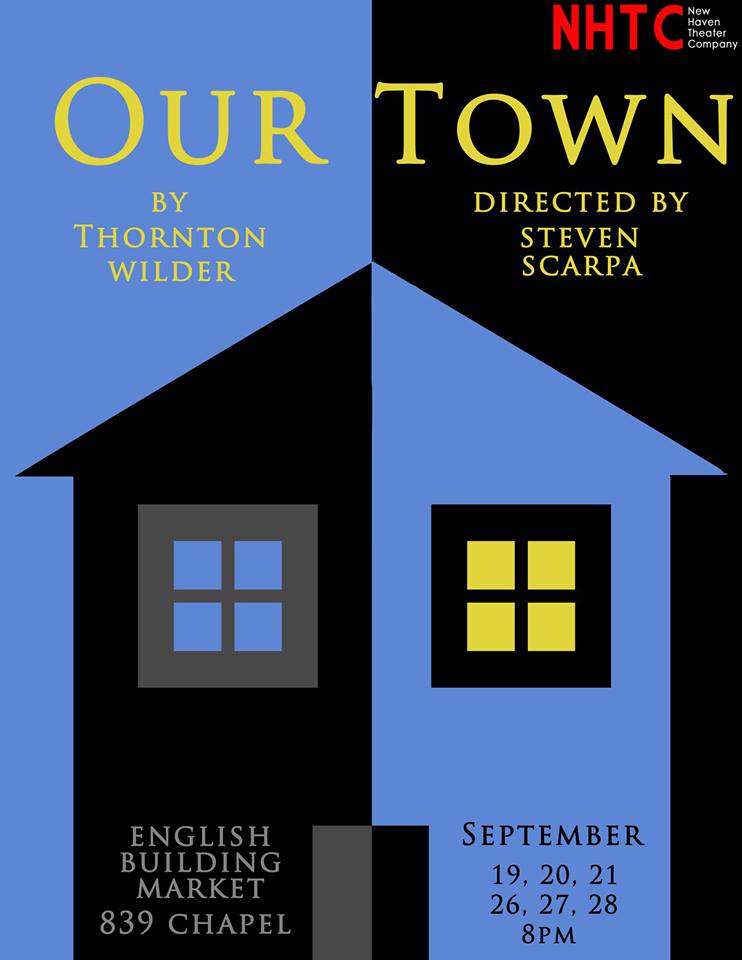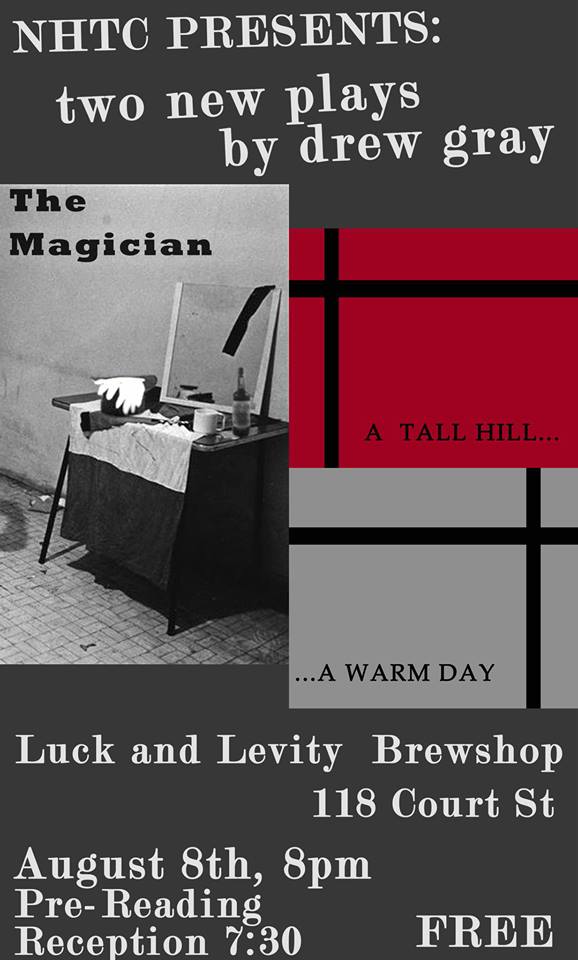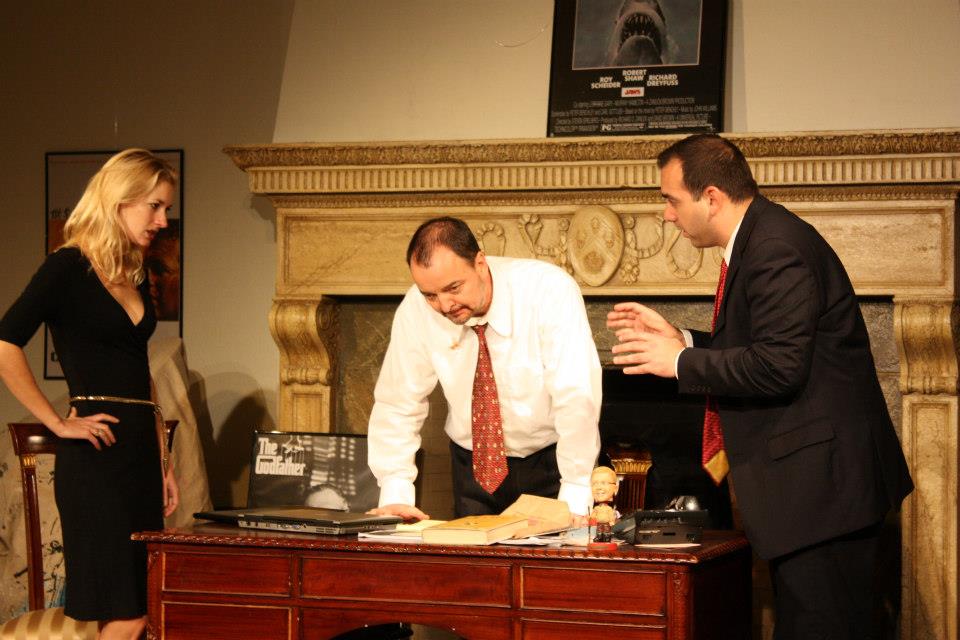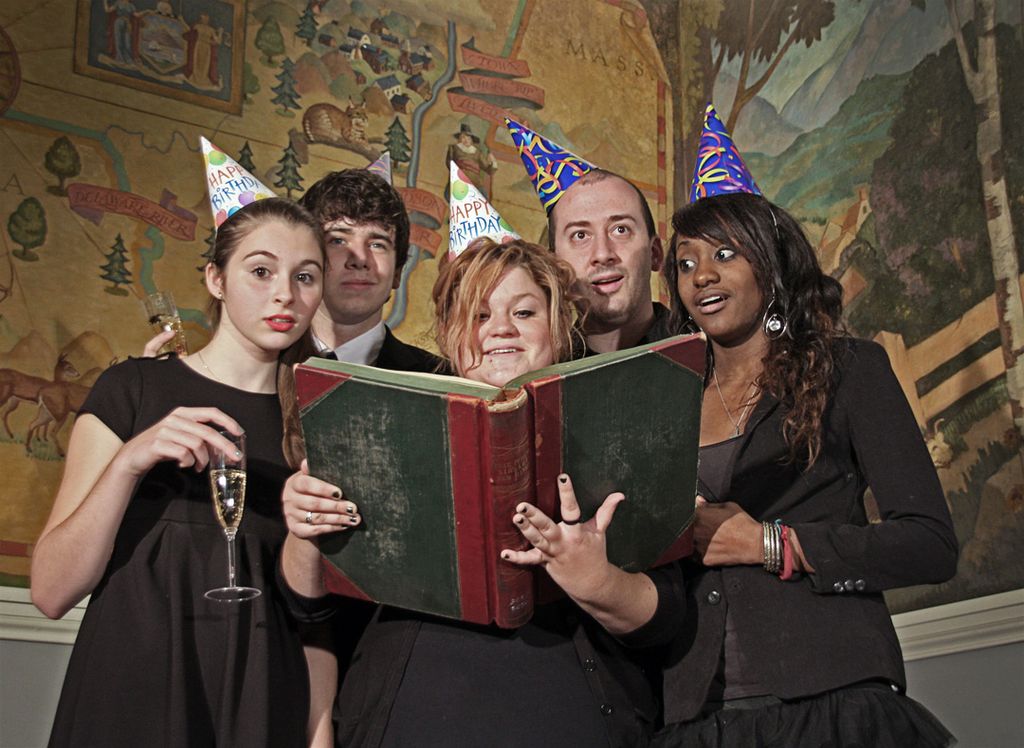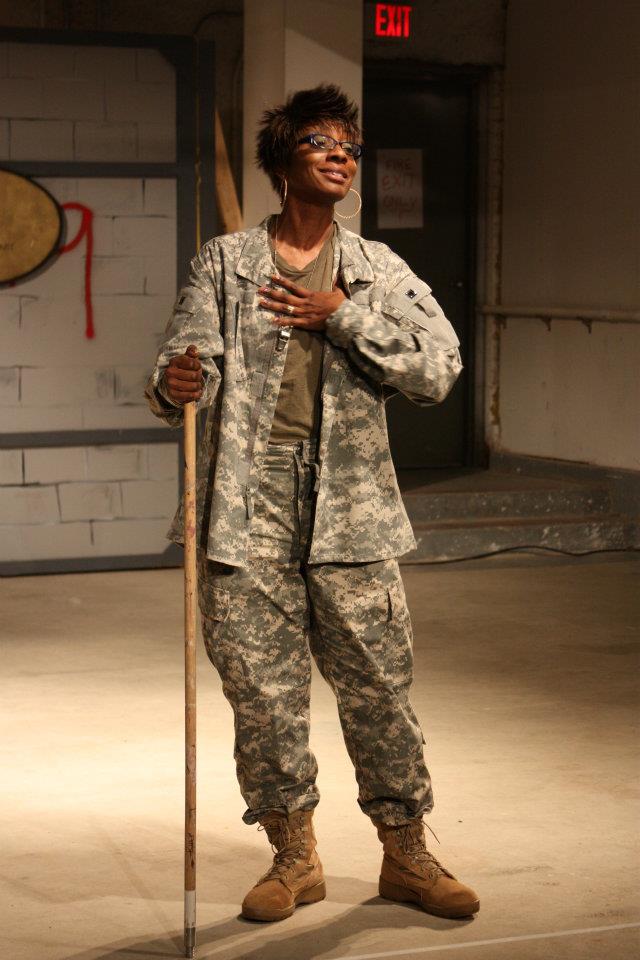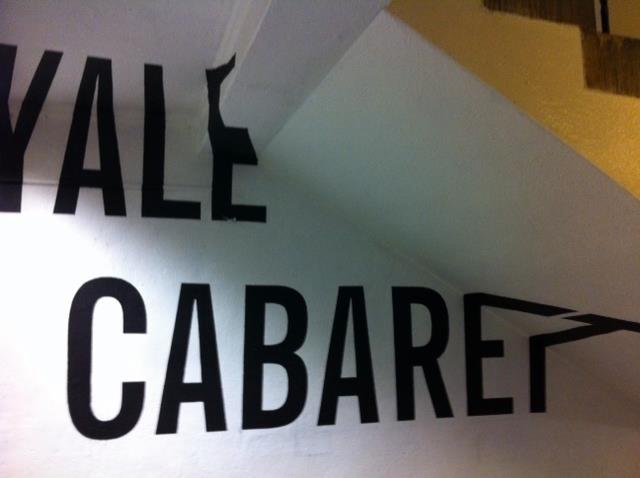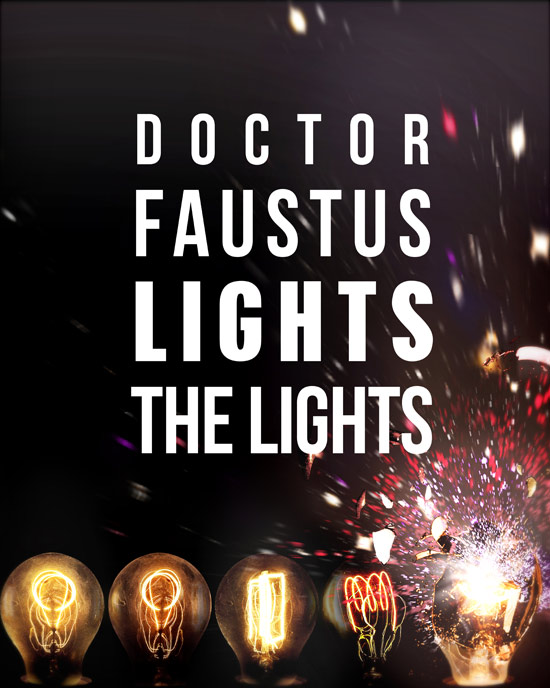Two local theatrical pieces are presenting the final shows of their brief runs tonight: The New Haven Theatre Company’s production of Eric Bogosian’s Talk Radio, at Ultra Radio, across from the Shubert, on 242 College Street, at 8 p.m., and The Yale Cabaret’s Slaves, book and music by Sunder Ganglani, at 8 and 11 p.m, 217 Park Street.
Both shows, we might say, know something about the risks of “dead air”: a stretch of no music or talk on a radio broadcast, the phrase can also be used to describe a stretch of no sound or speech in a play. Radio broadcasters strive to avoid dead air. Playwrights and performers choose sometimes to manipulate it artfully.
ART IS US
As a theatrical experience, Slaves is all about theatrical experience as artful manipulation. Sound rather circular? It is. The show, which consists of three separate “acts” or segments, takes place where “a play” (dialogue, characters, setting, plot) has become “performance” (a space and performers, in this case three, and, in this case, music). The “setting” is the Cabaret, and the “characters” are the people performing in the play (Adina Verson, Chris Henry, Lilian Taylor) who aren’t themselves, and us, the audience. In the early going, as Verson and Henry sit before a long, dark, heavy curtain in insistent light, their promptings and musings have the air of Beckettian characters who have decided to confront their onlookers rather than enact a play. At one point some noises off are identified by Verson as coming from “an actress” (Taylor) who seems to be a menial at first—handing in props (a large ceramic tortoise) and repeating what she’s told. Verson and Henry, on the other hand, hector, beseech, and ask for audience members to volunteer words, while assuring us that laughter is ok but not intended, and anything we might do is ok (one person chose to walk out). What was stunning about the opening is the rigor required for these actors to hold onto “dead air” (there are many pauses and gaps) and invigorate it with their presence, staring back at us staring at them.
The next act, with the curtain pulled back revealing a muted neon triangle, involves more singing and music (the three performers’ voices match well: Verson sounding angelic, Henry more earthy and Taylor somewhere in between), accompanied by somewhat robotic movements that eventually led to Taylor, before the curtain, apologizing, in earnest actress mode, for not performing at her best.
After that, it was time to milk Verson and Henry, via tubes connected to milk jugs down their shirts, into a porcelain receptacle adorned with two white birds. Earlier Verson had spoken about “waiting” only to falter mid line and make us wait for something more to be said. To wait for two separate quarts of milk to run out twin I V lines into a birdbath isn’t something you’d probably line up for, but, on the other hand, there’s no way I can tell you what effect sitting through it will have on you (when Henry’s jug, which took longer, finally ran dry there was a small burst of spontaneous applause). And that’s partly the point: you have to be there, just as the performers do, and wait for the milk to run out. Real time, like dead air, can be one of the riskiest elements in any performance, but also, oddly, one of the most pregnant.
Fast on the heels of the fluids scene came what seemed a song of ecstatic praise as Verson’s and Henry’s voices became a choir accompanying the whirling, vigorous dance Taylor enacted in non-stop movement for what seemed like ten minutes, illuminated only by the triangle’s neon in full brightness. An image of the body happy to be body, or as in Eliot’s Four Quartets: “you are music while the music lasts,” this final segment had the feel of culmination but how it “furthered” or “responded” to what preceded it was left to the spectator.
For me, the opening segment commented on the rigors of theater as a participatory spectacle that we might not normally think of that way; the second segment had more to do with the dynamic amongst the performers themselves, attempting to make what they do “work”; the final segment required us, as audience, to lose ourselves in the illusion of a dancer losing herself in dance. Illusion because the rigor of the movements belies the spontaneity they evoke, and yet . . . is there any more effective image of freely given servitude than a body dancing?
Slaves by Sunder Ganglani
with Chris Henry, Jillian Taylor, Adina Verson
Additional Music by Ben Sharony
The Yale Cabaret
September 15-17, 2011
217 Park Street, New Haven, CT
US IS ENTERTAINMENT
Forget the film Oliver Stone made of Bogosian’s Talk Radio; the play which first appeared in 1987, before the murder of “shock jock” Alan Berg and before the rise of Howard Stern, much less Russ Limbaugh. As performed by the NHTC, the original is not as over-the-top dark as the film, and is even, in comparison to the kinds of wise-mouths and numbskulls who haunt the airwaves today, rather sweet. As late night caller-based talk show host Barry Champlain, who has progressed from Akron to Cleveland and is poised to go national the very next night, Peter Chenot seems more like a hectoring older brother than a truly malicious razor-tongued cynic. He berates the stupid—the vast majority of his callers—and is even more uncivil to the bigots and phonies, but he has our sympathy. It’s a thankless task (though many of his callers worship him)—entertaining people by insulting them, so that they’ll come back for more.
Everyone else in the studio: Linda (Hilary Brown), his sometime girlfriend and Gal Friday, Stu (Erich Greene) the old buddy and colleague who has got his back (mostly) on the switchboard, and Dan (Steve Scarpa), the Suit who wants the show to be its best for the Big Boys, are all riding the gravy train in good show-biz fashion. The toll his tirades and tiffs take on Barry is the main plot of the play as we see him veer into an area he rarely gets into—first, the almost phone-sex-like seduction of a lonely mother, and then an actual in-studio meeting with a zonked-out stoner type, Kent (Jack Rogers), whose momentary upstaging of Barry comes as a final straw.
Like the radio show, the play, directed with a great feel for the benefits of the tight, intimate space by Hallie Martenson, is very much Barry’s show and Chenot has the charisma to make it work. The voice feels right—a gripping, slightly-sharper-than-thou tone that keeps his listeners listening—and, because he’s not just a voice to us, we see how much his performance is also for the benefit of his “handlers,” all mostly silenced while he talks. They each get their say when Barry is “off” and they reveal nothing very profound, apart from the fact that each seems to feel Barry could crack or go off the deep-end any given night. Scarpa’s Dan is mostly unflappably pragmatic; he takes credit for inventing “Barry Champlain” and is pleased with how far he’s gone, but knows its just a job, not a calling; Brown’s Linda, in a very winning bid for our sympathy, tells us what it’s like to be seduced by the great Barry Champlain, but also keeps her distance: “nice to visit, but I wouldn’t want to live there”; the most telling confidence comes from long-suffering Stu who was with Barry when he made the move to talk radio and has seen plenty of crazy on-air stunts, but now notices a widening rift between them. Greene is great at conveying the tired bonhomie of the background support and the sure eye of the knowing professional, watching from the sidelines.
The supporting cast—including Roger’s disarmingly goofy Kent and Marty Tucker as the voice of the financial advisor in the show preceding Barry, and the voices of the callers—go a long way to making us feel we are watching a real broadcast and not a sit-com version of one. Bogosian’s lines for the callers often sounded to me far too Saturday Night Live silly—some are hilariously off the wall, like the woman in fear of the trash disposal in her sink—but not as vivid as they might be if the show were written today. Which is a way of saying that Barry is nicer than today’s shock jocks, in the style of the older advisor/on air shrink, and his callers mostly insomniacs or dopers looking for a little connection. Barry’s final riff on the ills of society—“your fear, your own lives have become your entertainment”—is certainly prescient enough about where media and “reality” are going, and it’s perhaps nice, in a nostalgic way, to return to an era when they could still be separated.
The dead air that Barry hangs fire through near the end is a respite from his own disgust with his audience, and with himself as the flame attracting these mindless moths, but in Talk Radio it’s the dead air of a big breath, the moment a show hangs upon before the show goes on. As Beckett says, “I can’t go on I’ll go on.”
Talk Radio by Eric Bogosian
Directed by Hallie Martenson
Presented by New Haven Theater Company and Ultra Radio
September 14-17, 2011
Ultra Radio
242 College Street, New Haven, CT
